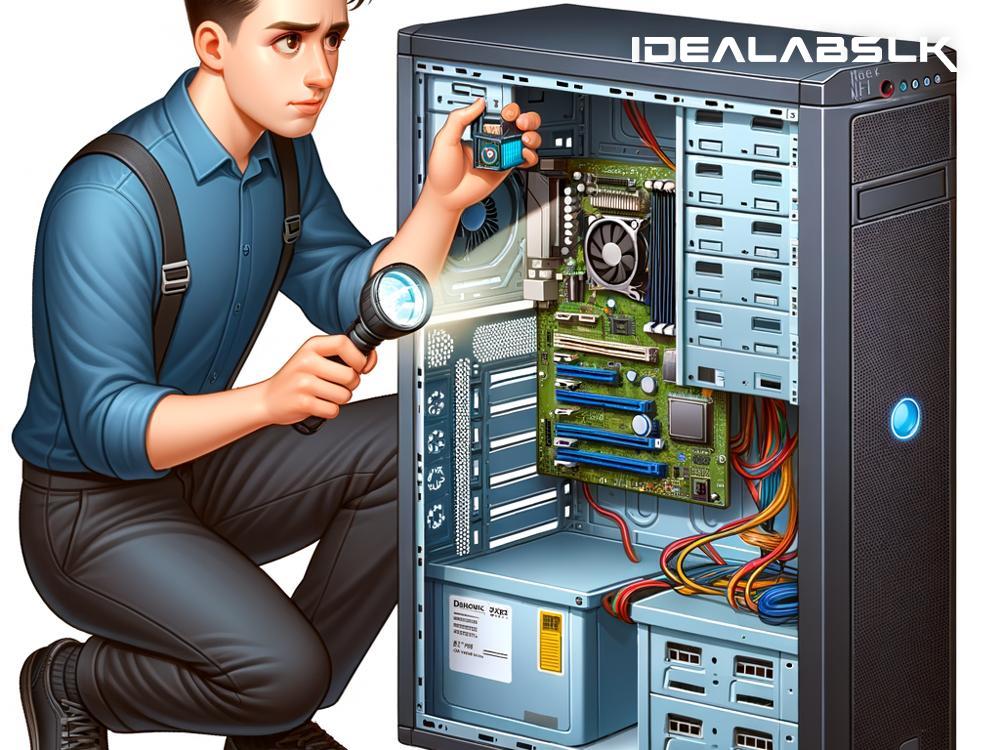How to Resolve 'PC Shuts Down Randomly Without Warning'
Picture this: you're deeply engrossed in your work or maybe in the middle of a thrilling game, and suddenly, your PC decides it's nap time - shutting down without any warning. Frustrating, right? Random shutdowns not only disrupt your activities but can also signal underlying issues with your computer. But don't worry! In this article, we're diving into simple, DIY strategies to solve the mystery of why your PC pulls the plug and how to fix it.
1. Check for Overheating
One of the most common culprits behind random shutdowns is overheating. Your PC generates a lot of heat, especially if it's working hard. If it gets too hot, it'll shut down to protect itself.
Solution: Ensure your PC is in a well-ventilated area. Clean out any dust and debris from the fans and heatsinks using a can of compressed air. Consider adding more fans or replacing the existing ones if they're not doing the job well.
2. Power Supply Troubles
An unreliable or failing power supply (PSU) can also cause your PC to shut down unexpectedly. This is because the PSU might not be providing consistent power needed by your computer to run smoothly.
Solution: Check the power cable connections to ensure they're secure. Also, if you're comfortable opening your PC, inspect the PSU for any signs of damage or wear. If you suspect the PSU is the problem, replacing it with a new one could resolve the issue.
3. Problematic Software
Sometimes, the issue isn't with your hardware but with the software. Faulty drivers or software can lead to system instability and cause random shutdowns.
Solution: Keep your operating system and drivers updated to the latest versions. If the problem started recently, think about any new software you installed and consider removing it to see if the issue resolves.
4. Hardware Conflicts or Failures
Other hardware components like your RAM, graphics card, or motherboard can lead to sudden shutdowns if they're failing or not properly seated.
Solution: Open your PC case and check if all the components are properly connected. Also, run diagnostic tests available in your PC's BIOS or from third-party tools to check the health of your hardware. If a specific component is failing, replacing it might be necessary.
5. Malware or Virus
Malicious software can mess with your system in myriad ways, including causing it to shut down randomly.
Solution: Run a thorough scan using a reliable antivirus program. Ensure the program is up to date to detect the latest threats. If it finds anything, follow the prompts to clean your PC.
6. Corrupted System Files
Sometimes, system files necessary for your computer to operate correctly get corrupted due to various reasons like improper shutdowns, malware infection, or disk errors.
Solution: You can use built-in Windows tools to check and repair system files. Open the Command Prompt as an administrator and type sfc /scannow. This command will scan and fix any corrupted system files.
7. BIOS Issues
An outdated or misconfigured BIOS can sometimes cause stability issues, including random shutdowns.
Solution: Visit your motherboard manufacturer's website and check if there's a BIOS update available. Updating your BIOS can be risky, so make sure to follow the manufacturer's instructions carefully.
8. Check for External Factors
Sometimes, it's not your PC but something external causing these shutdowns like power surges or fluctuations.
Solution: Consider using a surge protector or an Uninterruptible Power Supply (UPS) to protect your PC from these external power issues.
In Conclusion
Dealing with a PC that shuts down randomly without any warning can be a test of patience. By following the steps outlined above, you can identify and fix the issue, saving you from future interruptions. Remember, if you're not comfortable performing some of these solutions yourself, it's always a good idea to consult with or hire a professional technician. Your PC is an intricate system, and sometimes it takes a bit of detective work to keep it running smoothly.
It's always better to prevent these problems before they start, so regular maintenance and updates are key. Keep your PC cool, clean, and well-fed (with power), and it'll serve you faithfully for years to come.

